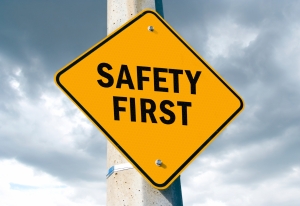 Psychological safety is a key ingredient in the formation of high performance teams.
Psychological safety is a key ingredient in the formation of high performance teams.
Empowerment, recognition, flexible work time or place arrangements and free food can all help but these amount to very little if team members feel afraid to be express vulnerability or to be themselves.
But how do we know when a team feels psychologically safe?
It is quite evident through team meetings, even to an outsider. Team members are candid and transparent with how they are feeling and what concerns them. They don’t hesitate to acknowledge weakness or mistakes on their part and are quite comfortable with challenging others in a non-threatening fashion.
Issues get thoroughly explored as team members don’t shy away from tackling potentially sensitive topics as they recognize that healthy conflict makes the team stronger. The cohesiveness of a team as well as their creativity and willingness to take calculated risks increases.
Team members are there for one another. Superficial niceties that we normally hear in daily greetings (“How are you doing”, “Good, you?”) get replaced with genuine expressions of empathy towards one another.
A feeling of high psychological safety does not develop quickly. So what can you do as a project manager to help?
- Communicate that psychological safety is a key goal for the team as part of team formation and new team member onboarding. Provide examples of behaviors which support and which hurt safety as well as indicating WHY safety is so critical.
- Use team building activities which provide opportunities to cultivate safety. Those which will put team members in a position where they will have to rely on one another and will test the boundaries of their comfort zones will be good choices.
- The culture of any team is shaped by the best behavior the leader is willing to amplify (Credit goes to Jurgen Appelo for the original quote). If you aren’t willing to express weakness to your team members or don’t act in a manner which makes them feel safe, don’t expect team safety to grow.
- Coach the team, but also your stakeholders. If you witness behavior which will erode psychological safety, call it out. Meet with offenders one-on-one and help them understand why their behavior is of such concern. If there are repeat occurrences, escalate.
Depending on the team members’ past experiences and the prevailing culture within their organization, it could take weeks of working together before we see it develop. But like a seedling emerging with the first few warm days of Spring, all it takes is a few harsh experiences for it to die.
Once psychological safety is lost within a team it might never return.





Pingback: Are you a (psychologically) safe project manager? – Better Time Management
Hi Kiron 🙂
How would you act upon this ?
I have the leader which is fantastic ( I know that for a fact ) but often looses himself in the too much working. He accepts the new initiatives.
I mean we have a very flexible work environment but there is no sense of human touch.
LikeLike
If you have a good relationship with the leader, bring this to his attention. Sometimes our managers are too busy to notice that there are problems happening. Provide specific evidence supporting your position and offer to help.
LikeLike